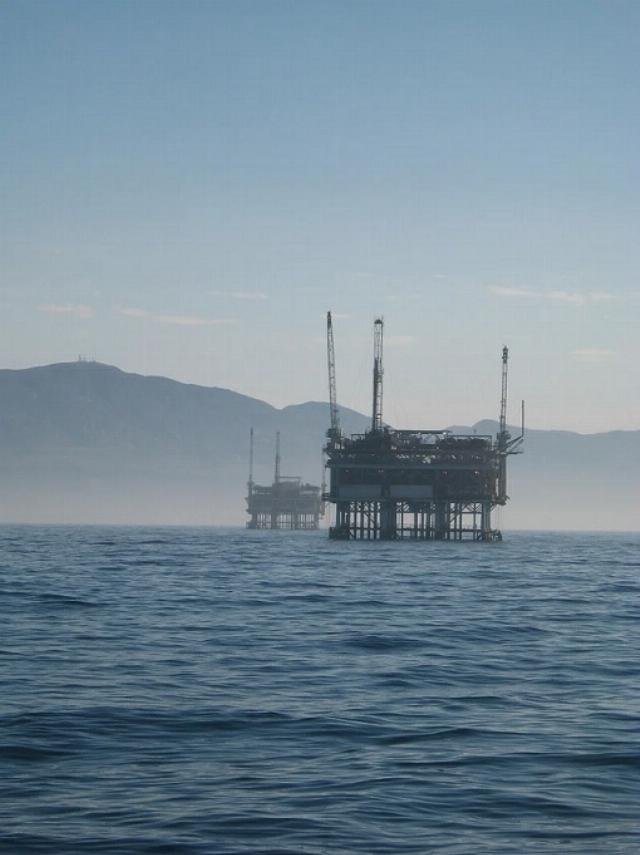
Recently, 60 Minutes ran a new plea for the U.S. to ratify the 1982 UN Convention on the Law of the Sea (UNCLOS). President Ronald Reagan rejected this convention then and, despite tentative efforts by Presidents Bill Clinton and Barack Obama to ratify, we still remain free of its entanglements. The CBS show segment blamed (credited) the Heritage Foundation for blocking Senate ratification. But National Review also played its part. I know because I wrote the April 16, 1982, cover story “How to Give Away Our Future: The New Law of the Sea” which I was informed was read by President Reagan and became part of his “stack of stuff” supporting his decision to reject UNCLOS. Not that it was a hard sell. The talks had been going on since 1973, and the future president devoted his October 10, 1978 radio address to warning against establishing a UN agency that would require companies to “accept production controls, turn over its technology to the UN. and find and evaluate mine sites for the Enterprise.”
The Enterprise, a UN-run mining operation, is “currently non-operational.” However, the post of interim director was established last year.
The International Seabed Authority (ISA) created by the treaty is very operational “as a detailed regime… the intergovernmental organization that organizes, carries out and controls activities in the Area (i.e. exploration for and exploitation of the resources) on behalf of (hu)mankind as a whole.” The Area is all the world’s oceans beyond the 12-mile territorial limit. And the ISA claim to represent all “(hu)mankind” is certainly grandiose. As Reagan had argued, there is no national interest that can justify giving control of two-thirds of the earth’s surface to the UN.
The ISA acts as if it owns the oceans. It contracts out to countries the use of the seabed for limited periods. Under its 2015 contract Russia was required to return 75% of its stake to the ISA last year. South Korea was scheduled to return 75% of its allocated space this coming June but was granted a two-year extension because of Covid delays. This is not the kind of system that encourages substantial investment in research, exploration, and development, all of which need property rights to truly flourish. Under ISA, the mining companies that do all the work cannot own the mines or operate them as they see fit.
60 Minutes argued that joining the ISA is essential for the U.S. to be able to compete with China over the development of “trillions of dollars worth of strategic minerals strewn on the ocean floor, essential for the next generation of electronics. China has five exploration sites, 90,000 square miles — the most of any country. The U.S. has none. It is blocked from the race because of the Senate’s refusal to ratify the Law of the Sea.” But the U.S. is not blocked because it does not accept the ISA as the controlling authority. Washington can back any firm to operate anywhere it desires under the ancient freedom of the seas doctrine it still holds. The ISA does not grant any rights that the U.S. does not already possess as a sovereign nation-state. Indeed, the ISA takes those rights away. As President George W. Bush said in regard to a different part of the UN, “America will never seek a permission slip to defend the security of our people.”
<img alt captext="Bureau if Safety and Environmental Enforcement” class=”post-image-right” src=”https://conservativenewsbriefing.com/wp-content/uploads/2024/04/un-law-of-the-sea-gets-even-worse.jpg” width=”450″>Citing China does not help the CBS argument given how Beijing has run roughshod over UNCLOS rules. The treaty accords coastal states a 200-mile Exclusive Economic Zone (EEZ) for development, but this is not to be an expansion of territorial waters. Movement through the EEZ is still the same right as under freedom of the seas. Beijing disagreed with this from the start. China’s delegate to the negotiations Li Ching stated, “China’s contention is that the essence of the new zone lies in the exclusiveness of coastal State jurisdiction.” When ratifying the treaty in 1996, China asserted full sovereign rights over its EEZ, which it defined in the most expansive manner possible. The U.S. and its allies run “freedom of navigation” naval and air sorties through these zones to keep them open.
China has ignored EEZ claims of other countries, leading to disputes with Vietnam, the Philippines, and Indonesia. Indeed, citing historic claims going back to the Western Han dynasty of the 2nd century BC, it claims some 90% of the entire Sout
h China Sea and has built military bases on artificially created islands to enforce its claims.
In its on-air presentation (but not on its online summary), 60 Minutes cited the rapid buildup of the Chinese navy, which is growing faster than the U.S. fleet. This was to hype fears of conflict that participation in UNCLOS would supposedly calm. This is certainly the hope of business leaders who want to avoid geopolitical risk and long for a return to the 1990s when it was fashionable (through clearly wrong) to believe that borders were disappearing and Great Power rivalries were part of a history that was ending. UNCLOS did not take effect until 1994 when sufficient members ratified it during that decade of delusion.
We were in the Cold War when President Reagan rejected UNCLOS, and we are in a renewed Cold War today. If seabed mining becomes the strategic battleground 60 Minutes predicts, where “China already controls a near monopoly of critical minerals on land. Now it wants to extend that control to the ocean floor,” Washington must respond in kind and on a scale that must not be limited by placing policy under ISA control. Both the Trump and Biden administrations have tried to decouple economic ties with China and build more secure supply chains in strategic industries. Unfortunately, the Biden administration has inhibited itself by granting legitimacy to UNCLOS.
On September 20 last year, the Biden administration signed the Treaty on the Conservation and Sustainable Use of Marine Biological Diversity of Areas Beyond National Jurisdiction, otherwise known as the High Seas Treaty. The UN has declared this “an international legally binding instrument under the United Nations Convention on the Law of the Sea.” Anything can affect biodiversity, including seabed mining, fishing, and transit so this is a further grab of UN power. The treaty bars any sovereign claims to resources in the High Seas. Of particular concern are genetic materials of use in pharmaceuticals. Any scientific developments are to be shared for the benefit of “all humanity” with the UN redistributing money, technology and data from those advanced nations that do the work to developing nations who lack their capacity. Another aim is to put 30% of the world’s oceans off-limits to any development by 2030.
The new treaty goes into effect if 60 UN member states ratify it, any 60 out of 193 member states. UNESCO (UN Educational, Scientific and Cultural Organization) wants to be a major part of the enforcement mechanism. The U.S. has twice withdrawn from UNESCO, under Presidents Reagan and Trump, because its radical ideology is dangerous to American interests. Biden rejoined UNESCO soon after taking office.
It will be argued that the U.S. can ratify the High Seas Treaty without having ratified the UNCLOS which spawned it, but it will also be argued that it would be more proper to ratify both under cover of a globalist Green agenda (which may be why CBS brought the issue up). The treaty has not been sent to the Senate, since passage would be impossible given its current composition. But a Biden second term with “progressive” gains in the Senate could make it a threat to American independence and the crafting of national economic security policy.
William R. Hawkins is a former economics professor who served on the Republican staff of the U.S. House Foreign Affairs Committee. He has written widely on international economics and national security issues for both professional and popular publications.





